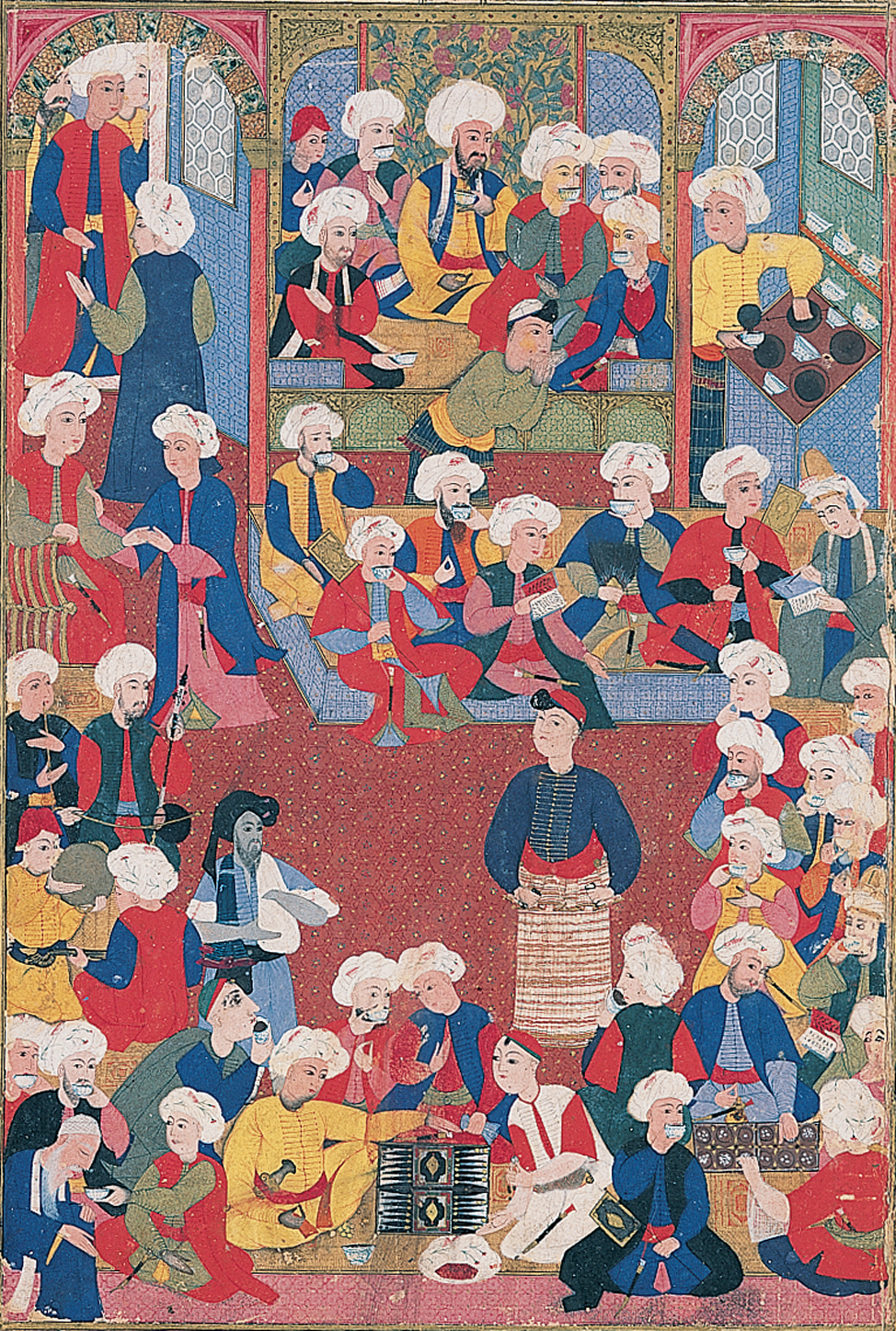A History of World Societies:
Printed Page 505
A History of World Societies Value
Edition: Printed Page 505
Coffeehouses and Their Social Impact
In the mid-

Coffeehouses provided a place for conversation and male sociability; there a man could entertain his friends cheaply and more informally than at home. But coffeehouses encountered religious and governmental opposition based on the following arguments: (1) because of its composition, coffee is intoxicating, making it analogous to wine, prohibited to Muslims; (2) coffee drinking was an innovation and therefore a violation of Islamic law; (3) coffeehouses encouraged political discussions, facilitating sedition; (4) coffeehouses attracted unemployed soldiers and other low types, encouraging immoral behavior, such as gambling, using drugs, and soliciting prostitutes; and (5) music at coffeehouses encouraged debauchery. Thus coffeehouses drew the attention of government officials, who considered themselves the guardians of public morality. On the other hand, the coffee trade was a major source of profit that local notables sought to control.
Although debate over the morality of coffeehouses continued through the sixteenth century, their eventual acceptance represented a revolution in Islamic life: socializing was no longer confined to the home. Ultimately, because the medical profession remained divided on coffee’s harmful effects and because religious authorities could not prove that coffeehouses violated religious law, coffee drinking could not be forbidden. In the seventeenth century coffee and coffeehouses spread to Europe. (For reaction to another new product that spread quickly despite opposition, see “Listening to the Past: Katib Chelebi on Tobacco.”)